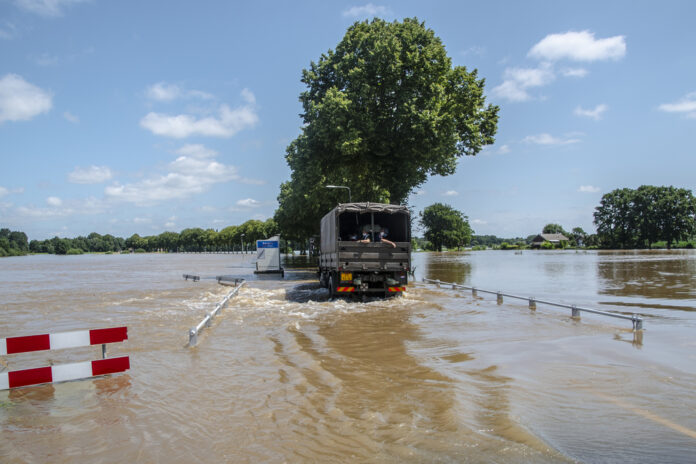In July, much of Dutch news was flooded with videos and images of, well, floods. The southern province of Limburg suffered blow after blow when heavy rainfall led to severe flooding in many villages.
In fact, the Dutch government even went so far as to declare the flooding a national disaster. It was the worst flooding the Netherlands had seen in decades.
What caused it? Experts asked themselves the same thing — and now they have the answer: climate change.
An international study
The Netherlands was not the only country to be affected by horrific floods. In fact, other countries suffered far worse consequences. In regions of Germany and Belgium, lives were lost to the severe floods.
The effort to determine what caused such devastation has therefore been an international one. Dutch climate scientists took part in the international study which found that the level of precipitation that occurs during heavy rainfall has risen from 3% to 19%.
How did this contribute to the flooding?
High levels of precipitation in Limburg led to the perfect storm in July of this year. Record-breaking levels of rainfall meant that the soil in the region was already saturated before the flooding.
Combine this with warm air, which absorbs water vapour, and the fact that it lingered so long in the one area — and you have a recipe for disaster.
More intense and frequent precipitation caused by climate change
Sjoukje Philip of the KNMI was one of the Dutch experts to take part in the study. She explains these findings to the NOS, saying “We looked at the precipitation that led to these floods and saw that it has indeed become more intense due to a changing climate.”
She also added that this intense level of precipitation occurs more often due to climate change.
The study compared our current world — one that has seen an increase in temperature of 1.2 degrees since we started emitting greenhouse gasses — to our world before we turned up the heat.
It found that, in our current climate, the chances of such extreme precipitation occurring again have increased by a factor of between 1.2 and — wait for it — 9.
Not just Limburg
Philip also pointed out that while Limburg was the region that suffered this time around, the chances of this happening in other regions of the Netherlands are just as high.
She continues to emphasise the importance of acknowledging the connection between climate change and extreme weather in the Netherlands, saying “it is important that people are realising that extreme weather is caused by climate change and that we need to limit greenhouse gas emissions.”
Have you become aware of the effects of climate change in the Netherlands? Tell us your thoughts in the comments below!
Feature Image: br***********@********il.com/Depositphotos



